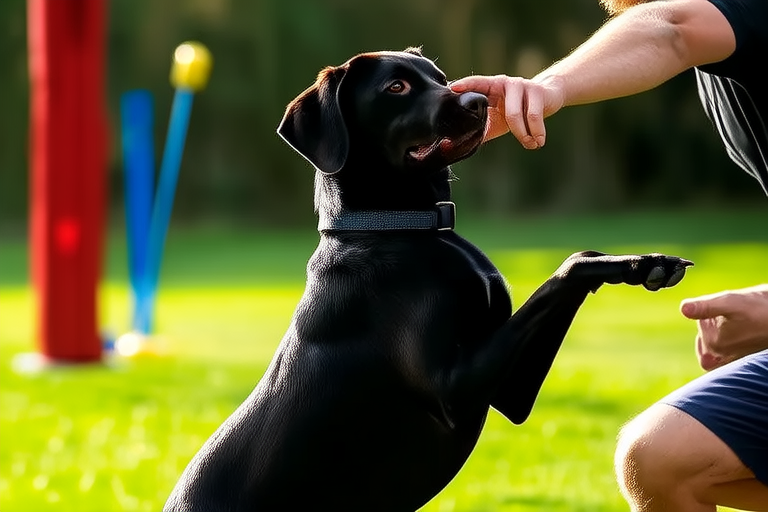Training Tips Every German Shepherd Owner Needs to Know
Welcome to the wonderful world of German Shepherds! These intelligent, loyal, and versatile dogs are popular pets, service animals, and working dogs. However, their intelligence and energy require dedicated training, socialization, and care. This article will provide you with essential training methods, address common behavioral issues, offer socialization techniques, share nutritional advice impacting behavior, discuss exercise requirements, and give tips for building a strong bond.
Essential Training Methods
German Shepherds are highly trainable due to their intelligence and eagerness to please. Positive reinforcement is the best approach to training your German Shepherd. Reward good behavior with treats, praise, and playtime. Consistency is key; use the same commands and signals every time. Start basic obedience training early, focusing on commands like sit, stay, come, and heel. Advanced training can include agility, protection, or therapy work.
Clicker training is another effective method for teaching your German Shepherd new tricks and behaviors. Clickers produce a distinct sound that marks the moment your dog performs the desired action. Pair the click with a treat, and your dog will quickly learn what behavior earns rewards. This method is particularly useful for shaping complex behaviors and correcting bad habits.
Common Behavioral Issues
Like any breed, German Shepherds can develop behavioral issues if not properly trained and socialized. Common problems include separation anxiety, excessive barking, and aggression. Separation anxiety can manifest as destructive chewing, pacing, or vocalizing when left alone. Excessive barking may be due to boredom, seeking attention, or guarding territory. Aggression can stem from fear, territorial instincts, or poor socialization.
To address these issues, provide mental and physical stimulation to prevent boredom and reduce stress. Teach your dog to associate your departure with something positive, such as a chew toy or puzzle feeder. Desensitize your dog to triggers that cause barking or aggression through controlled exposure and positive reinforcement. Consult a professional trainer or behaviorist if issues persist.
Effective Socialization Techniques
Socialization is crucial for German Shepherds to become well-adjusted, friendly adults. Introduce your puppy to various people, animals, environments, and situations during the critical socialization period (3 to 14 weeks). Puppies should meet different types of people, including children, elderly individuals, and those with disabilities. They should also encounter other animals, both familiar and unfamiliar.
Gradually expose your puppy to new experiences, ensuring each encounter is positive and rewarding. Use treats, toys, and praise to reinforce good behavior. Avoid overwhelming your puppy with too many new things at once. Continue socialization throughout your dog’s life by exposing them to new places, people, and situations regularly.
Nutritional Advice Impacting Behavior
A proper diet is essential for maintaining your German Shepherd’s health and behavior. Feed a high-quality, balanced diet that meets your dog’s nutritional needs. Avoid low-quality commercial foods that may contain fillers and artificial ingredients. Consult your veterinarian about specific dietary recommendations based on your dog’s age, weight, activity level, and health status.
Dogs with allergies or sensitivities may benefit from hypoallergenic or grain-free diets. Omega-3 fatty acids found in fish oil can improve skin and coat health and reduce inflammation. Probiotics and prebiotics support digestive health, which can positively impact behavior. Ensure your dog has access to fresh water at all times. Avoid feeding table scraps, as they can upset your dog’s stomach and lead to obesity.
Exercise Requirements
German Shepherds are active dogs that require regular exercise to maintain their physical and mental health. Aim for at least one hour of exercise daily, combining walks, runs, and playtime. Engage your dog in activities that challenge their mind and body, such as agility courses, fetch, and scent work. Exercise helps burn excess energy, reducing hyperactivity and destructive behavior.
Vary your dog’s routine to keep them interested and engaged. Incorporate new trails, parks, and obstacles into your exercise regimen. Encourage your dog to explore and investigate their environment. Regular exercise also strengthens the bond between you and your dog, promoting trust and cooperation.
Tips for Building a Strong Bond
The bond between you and your German Shepherd is essential for training, socialization, and overall well-being. Spend quality time together, engaging in activities that promote bonding and trust. Play games, go for walks, and practice obedience training. Offer affection and praise consistently, reinforcing positive behavior.
Establish a routine that includes designated times for feeding, exercise, and rest. Predictability provides comfort and security for your dog. Teach your dog to respect personal space and boundaries. Encourage independence while maintaining a strong connection. Trust and respect are the foundation of a healthy relationship with your German Shepherd.
Conclusion
Raising a German Shepherd requires dedication, patience, and love. By implementing these training tips, addressing common behavioral issues, practicing effective socialization techniques, providing proper nutrition, meeting exercise requirements, and fostering a strong bond, you can ensure your German Shepherd grows into a happy, healthy, and well-behaved companion. Remember, every dog is unique, so tailor your approach to suit your individual pet’s needs and personality.
